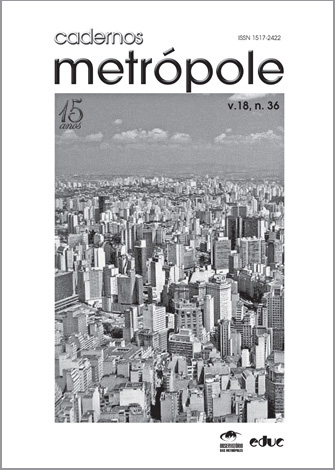Poverty and income mobility in the Brazilian metropolitan regions
Keywords:
poverty, inequality, income mobility, metropolisesAbstract
The question of poverty has been one of the main topics on the Brazilian political agenda and is among the Millennium Development Goals, a document that was signed in 2000. Poverty, understood as the result of multiple needs, has been decreasing due to a set of social policies and to the resumption of economic growth. The objective of this essay is to discuss whether the income mobility verified between 2001 and 2012 (Pnad-IBGE series) was accompanied by improvements in some of the dimensions that enable better living conditions to the population in Brazil’s metropolitan regions and by changes that allow the discussion of social mobility. Income mobility was verified when sectors of the metropolitan population rise from the two lowest deciles of per capita household income to higher deciles. The persistence of gaps in access to jobs, education, health and urban services was also noted.Metrics
Downloads
Published
How to Cite
Issue
Section
License
A revista não tem condições de pagar direitos autorais nem de distribuir separatas.
O Instrumento Particular de Autorização e Cessão de Direitos Autorais, datado e assinado pelo(s) autor(es), deve ser transferido no passo 4 da submissão (Transferência de Documentos Suplementares). Em caso de dúvida consulte o Manual de Submissão pelo Autor.
O conteúdo do texto é de responsabilidade do(s) autor(es).


